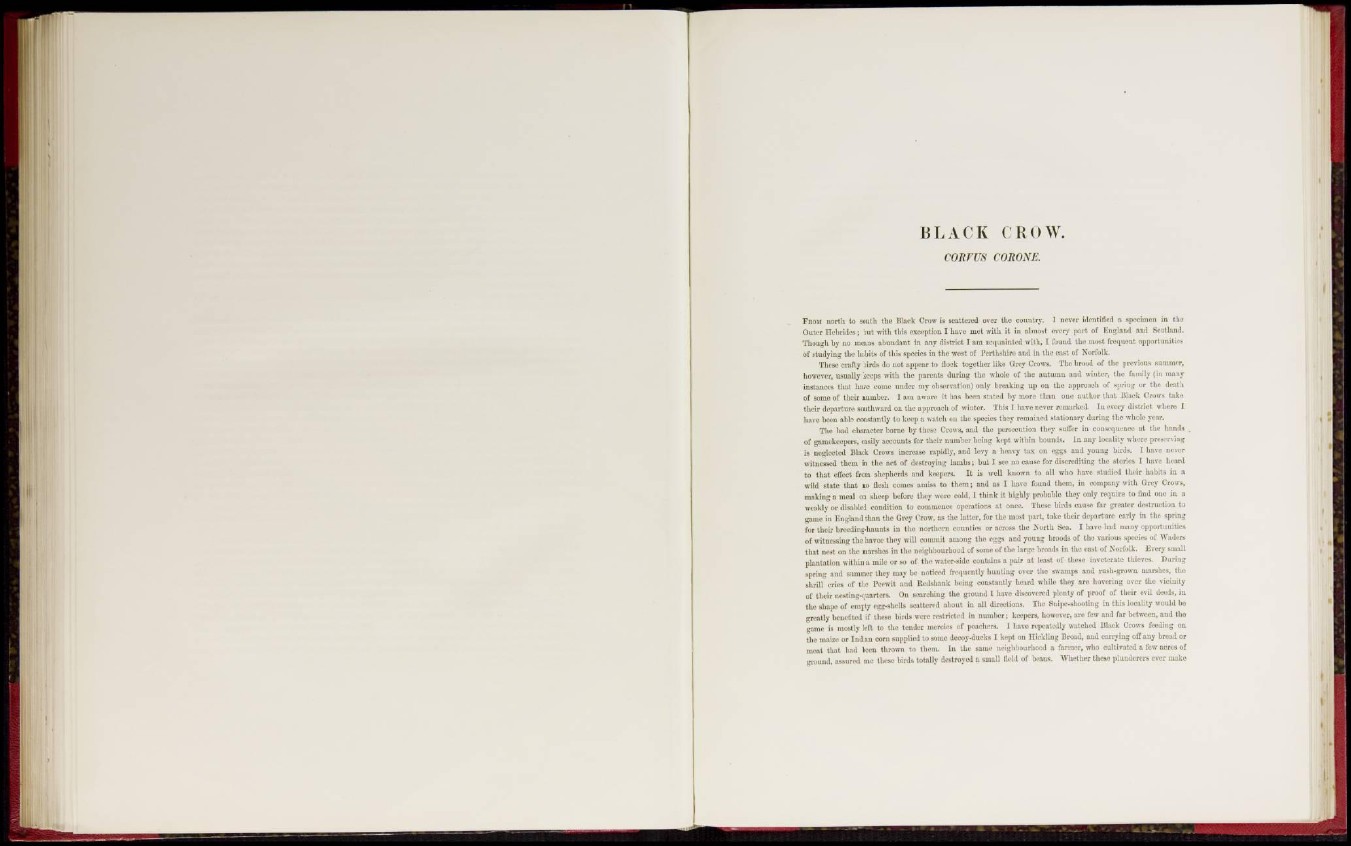
B L A C K C R O W.
COItFUS COXONK
FROM north to south the Black Crow is scattered over the country. I never identified a specimen in Ilia
Outer Hebrides; hut with this exception I have met with it in almost every part of England anil Scotland.
Though by no means abundant in any district I am acquainted with. I found the most frequent opportunities
of studying the habits of this species in the west of Perthshire and in the east of Norfolk.
These crafty birds do not appear to lloek together liko Grey Crows. The brood of the previous summer,
however, usually kee|ts with the parents during the whole of the autumn and winter, the family (in many
instances that have come under my observation) only breaking up on the approach of spring or the dcutli
of some of their number. I am aware it has BAN stated by more than oue author that Black Crows take
their departure southward on the approach of winter. This I have never remarked. In every district when; I
have been able constantly to keep a watch on the species they remained stationary during; the whole year.
The lind character borne by these Crows, and the persecution they suffer in consequence at the hands
of gamekeepers, easily accounts for their number being kept within bounds. In any locality where preserving
is neglected Black Crows increase rapidly, and levy a heavy tax on eggs aud young birds. I have never
witnessed them in the act of destroying lambs; but I see no cause for discrediting the stories I have heard
to that effect from shepherds and keepers. It is well known to all who have studied their habits in a
wild state that no flesh comes amiss to them; aud as I have found them, in company with Grey Crows,
making a meal on sheep before they were cold, I think it highly probable they only require to find one in a
weakly or disabled condition to commence operations at once. These birds cause far greater destruction to
game in England than the Grey Crow, as the latter, for the most part, take their departure early in the spring
for their breeding-haunts in the northern counties or across the North Sea. I have had many opportunities
of witnessing the havoc they will commit among the eggs and young broods of the various species of Waders
that nest on the marshes in the neighbourhood of some of the large broads in the east of Norfolk. Every small
plantation within a mile or so of the water-side contains a pair at least of these inveterate thieves. During
spring and summer they may be noticed frequently hunting over the swamps and rush-grown marshes, the
shrill cries of the Teewit and Redshank being constantly heard while they are hovering over the vicinity
of their nesting-quarters. On searching the ground I have discovered plenty of proof of their evil deeds, in
the sltape of empty egg-shells scattered about in all directions. The fllllno ehniWlag in this locality would bo
greatly benefited if these birds were restricted in number; keepers, however, arc few and far between, and tiro
game is mostly left to the tender mercies of poachers. I have repeatedly watched Black Crows feeding on
the maize or Indian corn supplied to some decoy-ducks I kept on Kickliug Broad, and carrying off any bread or
menl that hail been thrown to them. In the same neighbourhood a fanner, who cultivated a few acres of
ground, assured mc these birds totally destroyed a small field of beans. Whether these plunderers ever make